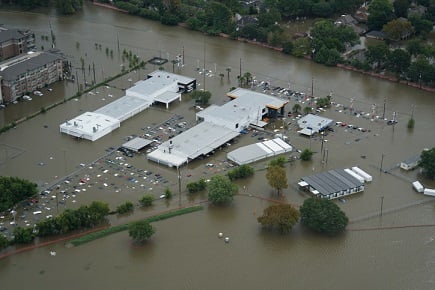The USA is enthralled in an intense battle with mother nature – and she is certainly making her ferocious presence felt.
Last week, Hurricane Harvey battered Texas and Louisiana in what was “the most economically significant natural catastrophe in American history,” according to Howard Mills, global insurance regulatory leader at Deloitte.
Celebrate excellence in insurance. Join us for the Insurance Business Awards in Chicago on October 26!
But it seems the country will have no respite. It’s widely expected that Hurricane Irma, currently a category 4 storm, is likely to strike Florida this weekend. It’s believed Irma could be of “historic size” and could dwarf Harvey to become the natural catastrophe with “the most significant economic loss” the country has ever seen.
Will the insurance industry be able to cope with two historic catastrophes in such a short period of time?
Yes, according to Mills. The insurance industry is in a very strong position to deal with a number of major catastrophes because it is “very well capitalized” and has had time to recover and rebuild capital since the last major incident of Super Storm Sandy.
Learn more about flood insurance at the Future of Flood event being held in Miami, Florida on November 16. Click here for more details and to register.
“Hurricane Harvey and Hurricane Irma (if it makes US landfall) are both very significant events and the losses are going to be huge,” said Mills. “But the insurance industry is very well capitalized and is well positioned to withstand these storms. I don’t see any problems with the ability of the industry to absorb these horrific losses.
“Thanks to the regulatory regime in the US, the regulators require capital to catastrophic levels. They have modelled very significant events, such as these two storms, and the capital required is in place. I have absolutely no doubt that the insurance industry will have a swift, comprehensive and helpful response to these storms.”
For Hurricane Harvey, the economic damage is likely to be greater than the insured losses because of a serious protection gap when it comes to flood coverage. The amount of uninsured or underinsured people in Texas who have had their whole lives destroyed is one of the “real tragedies” of the storm, added Mills.
“People just don’t understand that the standard homeowners’ policy does not cover flood,” Mills commented. “The purchase of flood insurance from the National Flood Insurance Program (NFIP) is affordable and readily available. But people just don’t think a major flood event will happen to them, which makes the sale of additional flood insurance very difficult. It’s a problem we’ve been struggling to fix for years.
“Perhaps it has something to do with people thinking Congress will bail them out. There’s going to be a massive recovery effort after Harvey in Texas, but that money is going to go to things like public infrastructure. If you’re totally uninsured, the government is going to provide some assistance but it’s not going to rebuild your house like a full replacement policy with flood insurance would. So people are going to have some very significant losses.”
In Florida, the take-up rate for flood insurance is significantly higher, so the insured losses could far exceed those in Texas, depending on the track Irma takes. Mills added: “The good news is that the insurance industry is so well capitalized that it’s well prepared to handle these storms.”
Related stories:
Florida insurers speak out as Irma looms
Post-Harvey and pre-Irma, Marsh advises insureds


